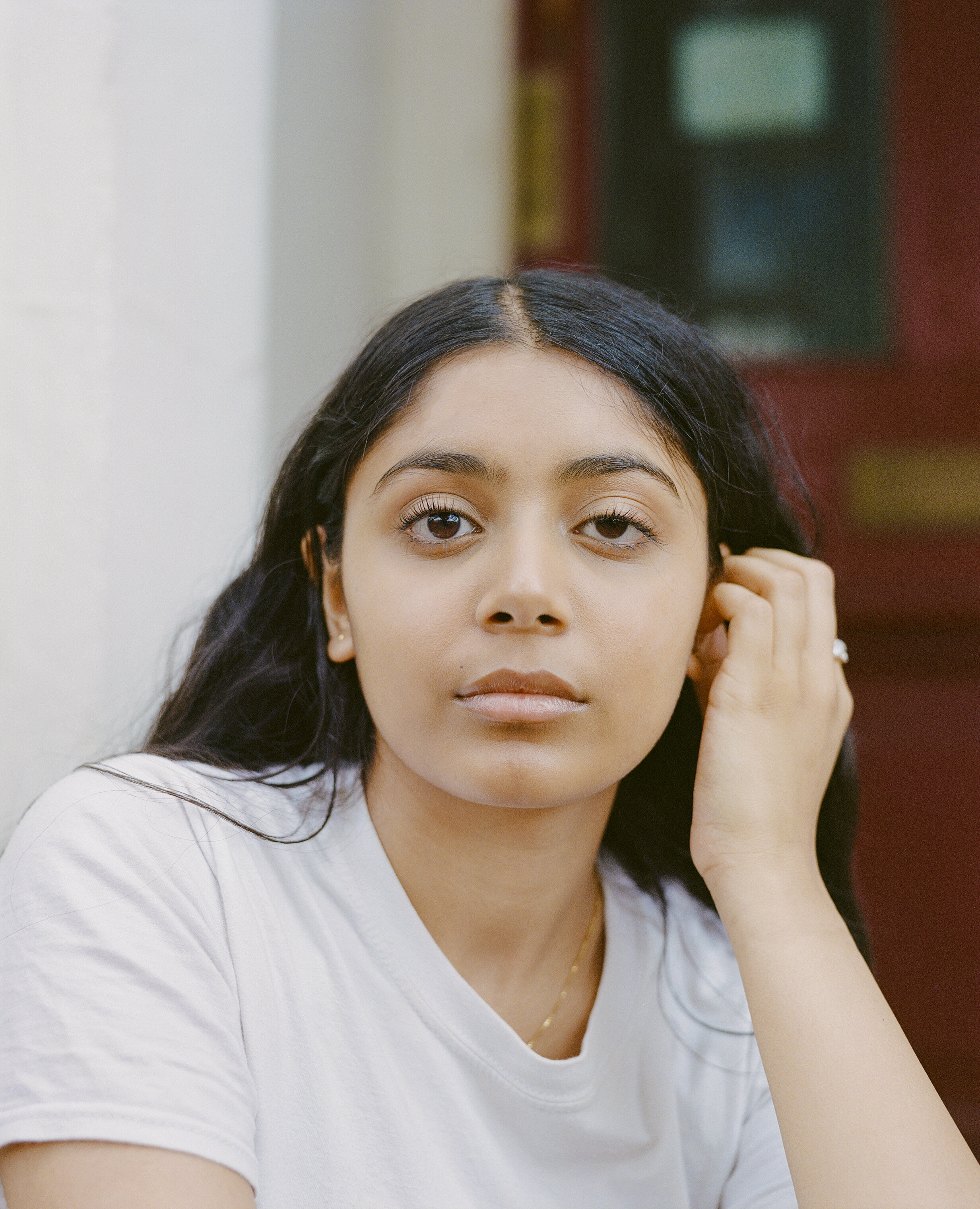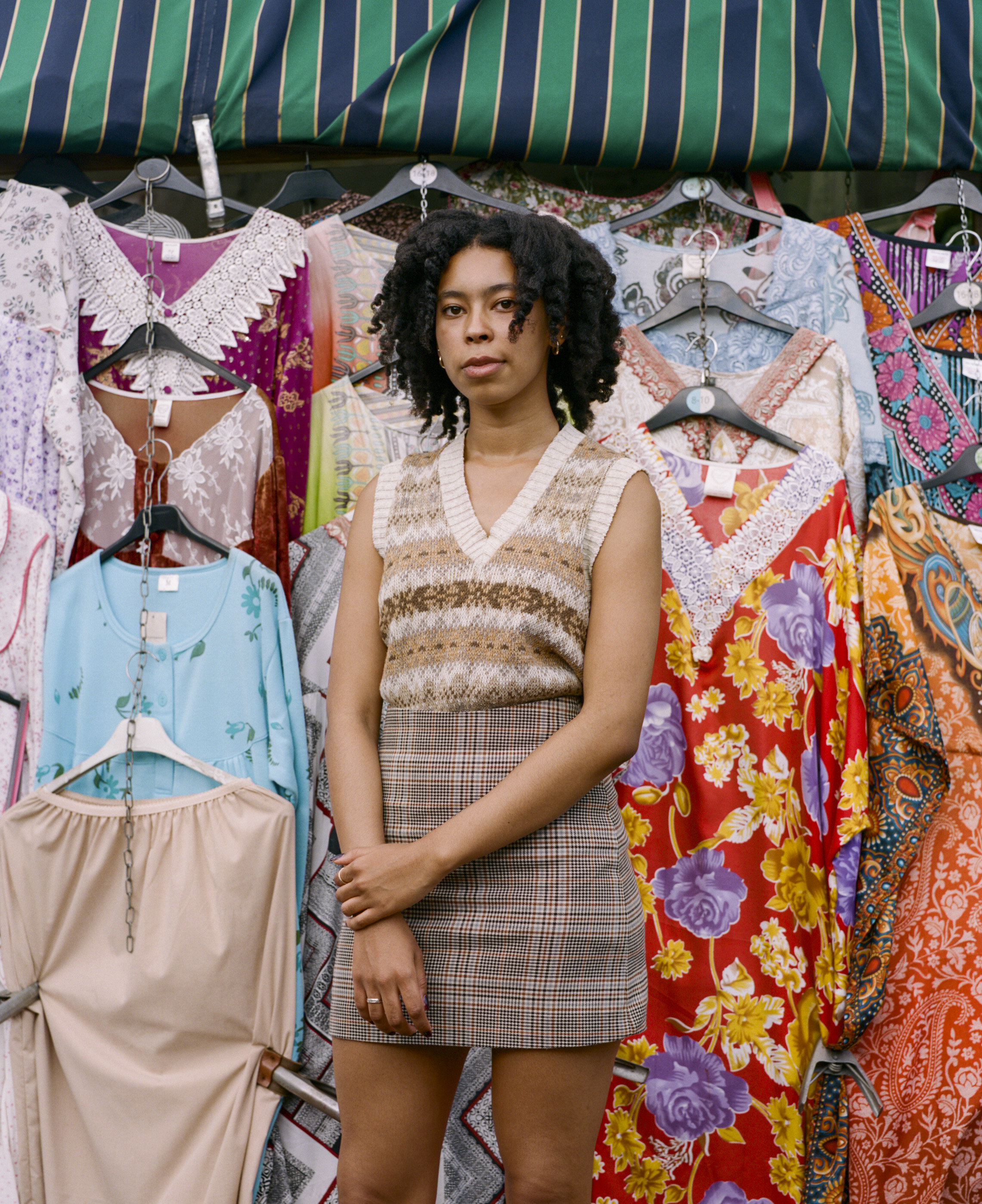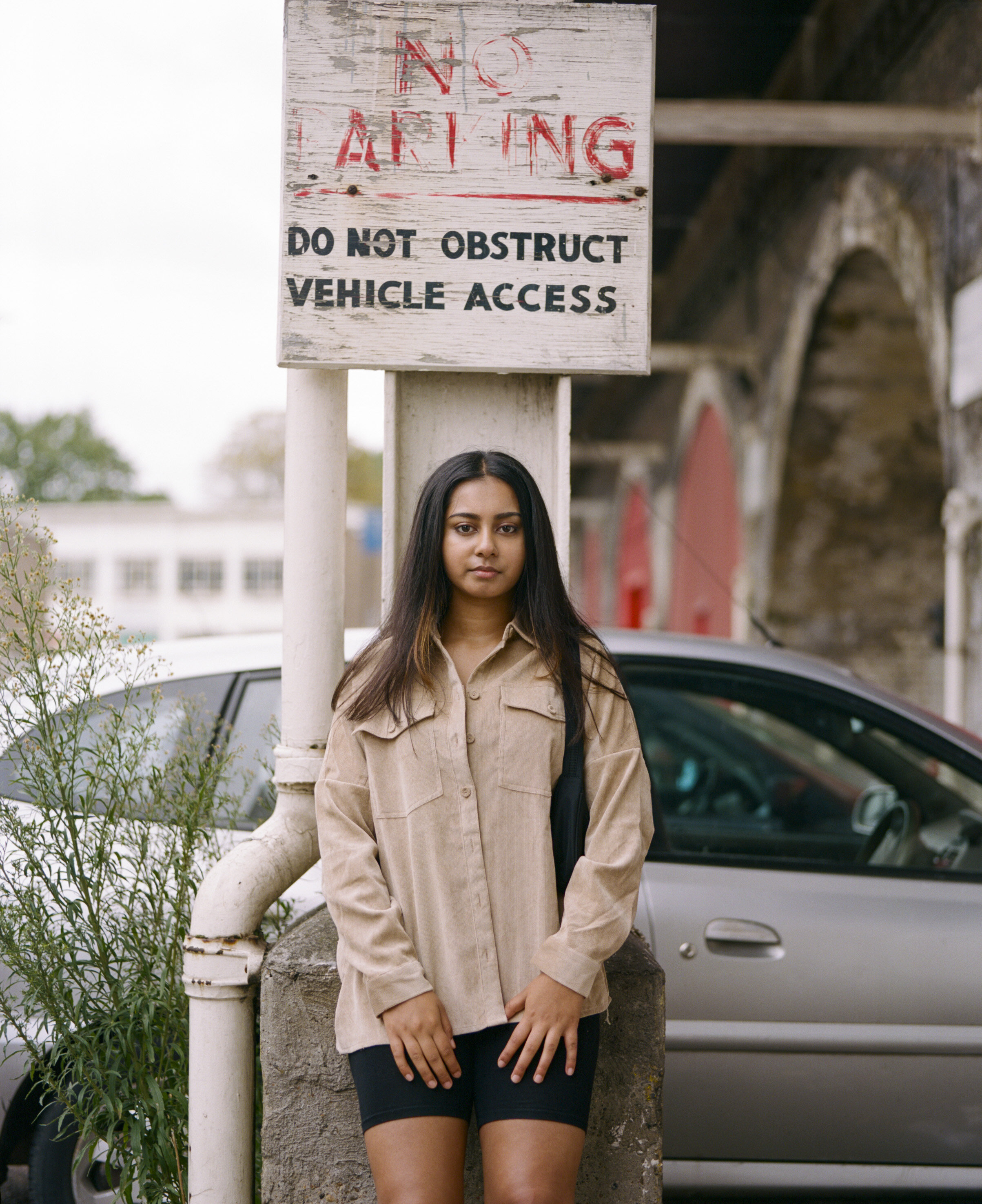Representation, Authenticity and Agency: An Interview with Serena Brown
This year has outlined the depths and differences to our lives – experiences shared, and incomparable – we have witnessed spectrums of privilege and prejudice, markers that have been present to many of us before this year dismantled our day to day lives. Within the extremities and trauma of this year, it was rare to see a focused viewpoint in mainstream media, a spotlight on the individuals whose voices we didn’t get to witness in the headlines. Instead it was the communities that confronted this, and the creatives that came from them, those who worked closely and tried to communicate these perspectives in new languages, paused at a point of 2 metres apart. In Class of Covid-19, a series of photographs by Serena Brown, she delivers just that – an insight and representation into the experiences of those around her. The series documents and portrays the young girls that were part of the graduating Year 13 group, capturing them at the height of lockdown, not long after their exams had been cancelled. I sat down and spoke with her about the project, the impact of mental health within this generation, and the importance of agency in photography.
“You can tell when someone is documenting a group of people as an outsider - you don’t see that same connection through photographer and subject. That human to human connection is important.”
‘I have a little sister, Chloe, and she was part of the Year 13 group, so I was sort of witnessing everything first-hand.’ It was seeing her sister speak about it with her friends, and witnessing how worried they were, that inspired her to begin the personal project. While the government stayed in silence about how they were going to grade the results, Brown went and spoke with students, capturing them on medium format, pictures taken on doorsteps, standing 2 metres apart.
‘Out of all the horrible things that happened this year, exams being cancelled was something that was swept under the rug. No one really spoke about these worries and what was going to happen. When it was decided that the algorithm was going to be used, there were so many red flags about it. People were talking about how this was going to be so detrimental to Black and Asian minorities and working-class people, and how it was going to benefit private school kids the most. Seeing everything unfold on results day was heart-breaking because I’d been speaking about it to the girls for so long. They knew what was going to happen. I don’t understand how it was allowed to get to the point that it did when it was so blatantly obvious that this was going be the outcome.’
Class of Covid-19 by Serena Brown
Class of Covid-19 by Serena Brown
Following the Year 13 results and their subsequent repeal - a revision which still left many disadvantaged - the project continued to garner well-earned praise for its provoking and honest themes. It was shortlisted for the Equal Lens 2 Metres of Separation competition earlier this year, and she has since been featured on platforms such as 1854 media and Creative Review. The authenticity reflected within these portraits, the earnestness that resonates, is something that is crucial to her practice. ‘Whenever I’m shooting, I take a lot of responsibility about the fact that I’m representing – wherever these images go or whatever story is being told – this is what people are going to see as a representation of that person. It’s really important for me that I try to capture them in their truest form. Authenticity is so key for me. I know that my most authentic work is always my best work.’
When asked what inspires her work and practice, she reflects on the importance of lived experience over specific photographers or visual influences. ‘I think for me, the biggest inspirations just come from my day to day life and my upbringing in London, the people I’ve grown up with. I like to analyse the society around me. A lot of my personal work is just about capturing a moment in time, an issue that’s affecting those around me.’
Class of Covid-19 by Serena Brown
Class of Covid-19 by Serena Brown
Class of Covid-19 by Serena Brown
Now that the year has moved on, and Brown finds herself continuing to produce work with these restrictions still in place, she endeavours to carry on capturing these stories, the ones so important to her work. ‘The people, the situations, and the culture I know, I know I’m able to capture it in the most honest way. You can really tell that through photography, when someone has put themselves in a place and is documenting a group of people as an outsider, you don’t see that same connection through photographer and subject. That human to human connection is important.’
This is a point that has been conversed throughout time, but raised again with more frequency, this year – the importance of agency and inclusivity with the photographic medium and industry as we know it. Closing the gap and seeing more working-class perspectives in the creative industries, is something Brown has spoken about before. ‘I think because my style has been so centred around platforming people and giving marginalised groups a voice, much of the brand work I’m commissioned for has been down that alley, which is great. It’s nice to know that as well as doing personal projects around these issues, these things are also being discussed by brands in the mainstream media. Obviously, there’s still a lot of work to be done but I think it’s positive that I can still work with brands that don’t detract from what I like to shoot as well.’
Class of Covid-19 by Serena Brown
Her advice to those who want to work in the industry and overcome these barriers? ‘I think there are so many initiatives out there about mentoring young people, from those in the industry. Whilst I worked at Refinery29 last year, so many of my colleagues who have been in the industry for a long time were always mentoring someone younger. I think finding a mentor, finding someone who has gone through it, can be super beneficial. Everything can be like a steppingstone; it’s about networking, about making yourself open and available to meeting new people who are able to help you on your journey. It’s also super important to perfect your craft. Constantly working at it and making sure that that you are creating all the time, because you always need to be prepared for a situation where you have a good opportunity. It’s about constantly working and letting that speak for itself.’
It's with this hard work, that the photographer has propelled herself into the creative industries, having only graduated from the University of Falmouth two years ago, she has already worked with many predominant brands. The experience of moving away from London, was a formative one for the photographer. ‘It was a massive shock to the system, being in a place that was so different to where I grew up and the lack of diversity there. I knew that there was so much more I could be exploring and learning about. I think being from London that’s what I grew up with - learning about other people. My work is so focused within that, and [I was] six and a half hours away. In third year, I was constantly coming back to London, but I think it was important for me to do that. It’s definitely informed the way I work now and my hunger and drive to work really hard to get what I want to achieve.’
“Designer brands can be very exclusive and if you can’t afford it - you’re not allowed to wear it. Fashion should be inclusive.”
Her graduate project in which she travelled back to London to create was called Back A Yard, and examined the appropriation of streetwear in high fashion, looking at designer brands that created tracksuits at extortionate and exclusive prices. ‘I’m just a lover of tracksuits and they’re everything I ever wear. I was really interested in bootleg [fashion] and the way people will literally just wear fake designer stuff and rock it with the most confidence. Designer brands can be very exclusive and if you can’t afford it - you’re not allowed to wear it. I think that it’s really cool the way people still find ways to still include themselves within fashion, because fashion should be inclusive.’
Working with her friend and textile artist Georgia Borenius, they created three original tracksuits, taking inspiration from the main brands that were producing the tracksuits at the time. ‘It was kind of inspired by Dapper Dan who was a tailor in the 1980s and 90s in Harlem, who would take offcuts of designer stuff and rework it into hip hop fashion trends of the time. I wanted it to be about a variety of brands but I focused on Louis Vitton, Gucci and Burberry, as they were the main ones that were selling tracksuits. We came up with the designs for each brand and then I picked up some fake fabric and she also printed some digitally. It cost about £20 per tracksuit, so it was reasonable.’
Back A Yard by Serena Brown
Back A Yard by Serena Brown
Back A Yard by Serena Brown
Since moving back to London after graduation, Brown has been working full speed ahead. She cites her highlight during this time as the ability to include her friends and work with them in a creative setting. When asked about the thing she’s learnt - or still learning - is the ability to say no. ‘I feel the pressure of the industry and social media, that mentality that you’re not ever allowed to rest because as soon as you do, everything will stop - it’s so ridiculous. It’s about learning how to say no and taking care of your mental health, that’s something that needs to be prioritised more.’
An honest conversation, like most of the themes that run throughout her work. For her, the aspect most important about photographing someone, comes down to this. ‘You have to be able to trust me, and trust I’m going to do my best to represent you. It’s about building connections and understanding what’s most important.’
You can keep up to date with Serena Brown’s work via her website and Instagram. Interview by Saffron Lily.









